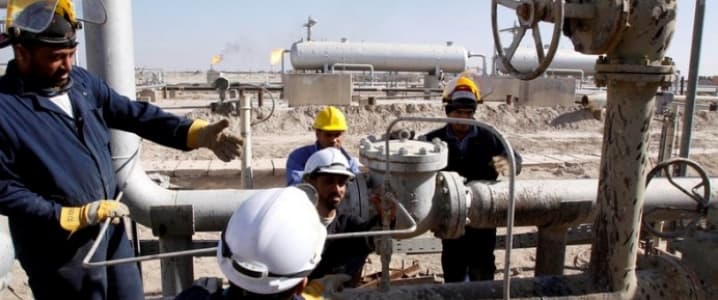Iraq’s government is ambitious and it wants to make the most of the country’s oil and gas reserves. Plans for an expansion of the country’s refinery network have been circulating for years, but the war with IS has put these on hold. What’s worse is that the prospects for these plans are gloomy unless it gets a significant amount of external help.
Before the war with IS engulfed OPEC’s second-largest exporter, plans were to add five new refineries to the network over a period of 20 years, starting in 2008. At the time, the refining capacity of Iraq stood around 886,000 bpd.
Since then, the only progress made has been the start of construction of the Karbala refinery, as one expert, the former chief of the Energy Study Secretarial of OPEC, notes in an industry analysis.
In it, Saadallah al Fathi quotes information from an unnamed industry insider who had told media that Iraq’s government is planning the construction of not five but twelve to thirteen new refineries with combined installed capacity of between 1.425 and 1.530 million bpd. All this is supposed to happen in the next four years, no less.
Al Fathi is right to be suspicious of this information. He is also suspicious of the unnamed source’s statement that Iran will be helping Iraq prop up its downstream industry, but these suspicions are not so well grounded: Iran’s current rulers are allies of the government of Haider al-Abadi, and it makes sense to suggest that the neighbors have realized that if they work together they may reap more benefits than if they try to compete.
The suspicion surrounding the timeline for the construction of these twelve or more refineries, however, is sound. Iraq is still fighting IS – the army has not yet retaken Mosul. Progress with that mission has been slow, but it is being made and we will probably see the terrorist group ousted from its last big stronghold in Iraq later this year.
This, however, will not solve Iraq’s security problems: the consensus in army circles seems to be that a prolonged presence of U.S. forces will be needed to help the Iraqi army maintain peace between various religious groups and deal with the very likely resurgence of IS.
This situation is by no means conducive to business. Investors are bound to be wary when they make decisions about throwing money at new refineries. And without external investors, Iraq’s refinery expansion plan is doomed. Related: Is $60 Oil Within Reach?
The country’s coffers have been drained from the war with IS and the oil price crash. Iraq can’t even make the most of the price improvement because it has to cut its production as per the agreement struck with the other members of OPEC as a way of propping up prices. It can’t wriggle out of the agreement because traders and analysts are watching it like hawks: Iraq is considered the most likely OPEC member to cheat on its compliance with the agreement precisely because it needs more oil revenues desperately.
Last month, Oil Minister Jabar al-Luaibi reassured the market that Iraq will stick to its undertaking in the production cut agreement, adding that it plans to tender five new refineries on an investment basis, and expand existing ones, most of them damaged during the war with IS. Saadallah al Fathi is skeptical – the investment basis has been advertised before but has failed to attract meaningful investor interest.
While skepticism may be in order when it comes to war-torn Iraq, it is still the country with the fifth-largest oil reserves in the world, and that changes things. It all seems to hinge on the success in rooting out IS from Iraq and on the success of the output cut deal, which has so far been limited.
By Irina Slav for Oilprice.com
More Top Reads From Oilprice.com:
- Artificial Intelligence To Reveal The Biggest Secret In Oil
- Energy Storage Set To Boom In 2017
- Mafia, Guns And Clans: The Big Libyan Oil Heist

















